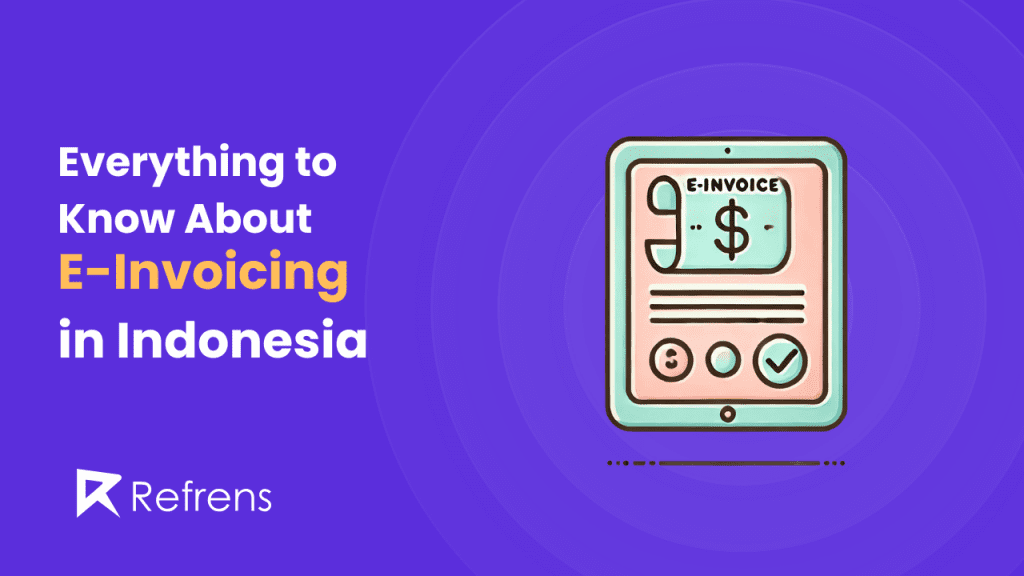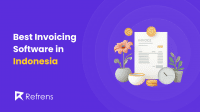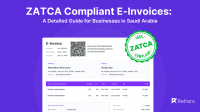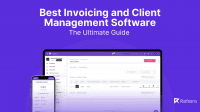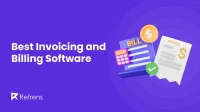Introduction
e-Invoicing has become a critical tool for businesses in Indonesia, offering a digital solution for managing billing and tax reporting. Through the government’s e-Faktur system, VAT-registered businesses must issue electronic invoices, ensuring compliance with local tax regulations while minimizing errors.
Beyond compliance, e-invoicing speeds up payment processing, enhances transparency, and reduces costs. This blog highlights the key benefits, and regulations, and provides a step-by-step guide to help businesses implement e-invoicing effectively.
What is e-invoicing?
e-invoicing, or electronic invoicing, is the digital process of creating, sending, and storing invoices. It replaces traditional paper-based invoicing, offering businesses a more efficient and accurate way to manage billing and payments. e-invoices follow a standardized format, making them easier to process and store electronically, reducing errors and improving transparency.
Importance of e-invoicing in Indonesia
E-invoicing plays a critical role in Indonesia’s growing digital economy. Key benefits include:
- Tax Compliance: The Indonesian government mandates e-invoicing for VAT-registered businesses to ensure accurate tax reporting and reduce tax evasion. The e-Faktur system introduced by the Directorate General of Taxes tracks VAT payments more effectively.
- Operational Efficiency: By automating invoice management, e-invoicing reduces human errors, speeds up the payment cycle, and enhances overall business efficiency.
- Transparency and Traceability: Businesses and tax authorities can easily track invoices from issuance to payment, ensuring transparency and reducing financial discrepancies.
- Environmental Sustainability: E-invoicing minimizes the need for paper, helping businesses reduce their carbon footprint.
E-invoicing Regulations in Indonesia
Overview of the Mandatory e-invoicing Regulations
Indonesia’s e-invoicing system, known as e-Faktur, was implemented to modernize tax reporting and improve compliance. This system requires VAT-registered businesses to issue electronic invoices for all taxable transactions, allowing for real-time reporting to the Directorate General of Taxes (DGT).
The primary goals are to reduce tax fraud, streamline VAT reporting, and automate the invoicing process to minimize human errors. Since its introduction, e-Faktur has become a crucial part of Indonesia’s tax infrastructure, ensuring more efficient, secure, and transparent VAT filing.
Timeline for Adoption by Different Businesses
- 2016: Large businesses (with turnover over IDR 4.8 billion) were required to adopt e-invoicing. This phase targeted larger corporations to lead the transition to digital invoicing.
- 2017: Medium-sized businesses, with turnover between IDR 2.5 billion and IDR 4.8 billion, were required to follow suit.
- 2018: The e-invoicing mandate was extended to small and medium enterprises (SMEs) with turnovers below IDR 2.5 billion, ensuring widespread adoption across businesses of all sizes.
- 2020 Onwards: Full implementation was achieved, making e-invoicing mandatory for all VAT-registered businesses, regardless of size or sector.
Key Regulatory Bodies Involved
- Directorate General of Taxes (DGT): The primary body responsible for overseeing the e-Faktur platform, ensuring smooth tax administration and compliance. DGT provides support and guidelines to help businesses navigate the e-invoicing system.
- Ministry of Finance: Sets tax policies and works closely with the DGT to ensure the e-invoicing system aligns with national economic goals and fiscal policies.
- Bank of Indonesia: Supports the digitalization of financial transactions and integrates e-invoicing with electronic payment systems, making it easier for businesses to manage invoices and payments simultaneously.
These regulatory bodies ensure that the e-invoicing system functions smoothly, fostering compliance and transparency in tax reporting for businesses across Indonesia.
How to Implement e-invoicing in Indonesia: A Step-by-Step Guide
Implementing e-invoicing is a critical step for Indonesian companies looking to streamline their tax reporting and compliance with government regulations. Here’s a detailed, step-by-step guide on how to set up e-invoicing in Indonesia.
Step 1: Register Your Business on the Tax Authority’s Platform (DJP)
The first and most important step is registering your business with the Indonesian Directorate General of Taxes (DJP). This process ensures that the government recognizes your business for generating e-invoices. You will need the following:
- Company Tax ID (NPWP): Your company must have an NPWP, which is a unique tax identification number issued to registered taxpayers.
- E-Faktur Application: The DJP provides an official e-faktur application that businesses must use to create, manage, and submit e-invoices.
Step 2: Verify and Activate Your Account
Once registered, the next step is to verify and activate your account. You will receive a digital certificate from the DJP, which is essential for securing and verifying your business transactions. This certificate will allow you to log in to the e-faktur system and authenticate your invoices.
Step 3: Set Up the e-Faktur System
After receiving your digital certificate, you can now proceed with setting up the e-faktur system. This process involves:
- Installing the e-faktur application provided by the DJP on your local server or cloud system.
- Configuration and synchronization with your existing financial and accounting systems. This integration helps automate the creation and submission of e-invoices.
Step 4: Create Your e-invoices
Once the system is in place, you can start generating e-invoices. These invoices should include specific details such as:
- Taxpayer Information: NPWP, business address, and tax registration details.
- Invoice Details: Invoice number, date, and transaction specifics.
- Value-Added Tax (VAT): The applicable VAT must be listed as per Indonesian tax laws.
The system will generate an invoice code that must be attached to each e-invoice for authenticity.
Step 5: Submit the e-invoices to DJP
After creating the e-invoices, the next step is to submit them to the DJP. The e-faktur system allows for easy submission directly to the DJP’s platform. Upon submission, the system will validate the invoice, assign a unique invoice number (NPT), and ensure it is recorded in the DJP database.
Step 6: Receive Confirmation and Archive Invoices
Once your invoice is validated, the DJP will send a confirmation. It’s important to store these confirmations along with your invoices for compliance and auditing purposes. You must maintain digital archives of all submitted invoices for at least five years, as mandated by Indonesian law.
Can e-Invoices Be Corrected?
In Indonesia, businesses using the e-Faktur system can correct errors in submitted e-invoices, ensuring accurate records and compliance with the Indonesian Directorate General of Taxes (DJP). Here are the main correction methods available:
- Issuing a Credit Note (Nota Retur): If the submitted e-invoice contains minor errors—such as inaccuracies in the amount, tax rate, or item descriptions—a credit note is issued. This document adjusts the value of the original invoice, offsetting any overcharges or inaccuracies. The credit note references the original invoice, aligning both records in the e-Faktur system for seamless VAT reporting.
- Creating a Revised Invoice (Faktur Pengganti): For more significant errors, where the original e-invoice needs a full replacement, a revised invoice can be generated. This new invoice, linked to the initial record, includes all corrected details, ensuring the changes are documented properly. The e-Faktur system maintains both the original and revised invoices to provide a comprehensive audit trail.
This correction process not only allows businesses to uphold accuracy in tax and financial records but also ensures they remain compliant with Indonesia’s stringent e-invoicing regulations.
Can Foreign Businesses Use e-Faktur in Indonesia?
Foreign businesses can use e-Faktur in Indonesia, but specific conditions apply. The e-Faktur system is primarily required for businesses registered in Indonesia that are subject to VAT. For foreign businesses with a Permanent Establishment (PE) in Indonesia, compliance with local tax laws—including e-Faktur invoicing—is mandatory for VAT reporting.
For foreign businesses without a PE, however, e-Faktur is not directly required, as they are not classified as VAT-registered entities under Indonesian regulations. In cases where these businesses engage in taxable transactions with Indonesian companies, the Indonesian business partner must issue e-Faktur on behalf of the foreign company to ensure compliance with VAT obligations.
To clarify:
- Foreign businesses with a PE in Indonesia: Required to use e-Faktur to issue invoices in line with local VAT requirements.
- Foreign businesses without a PE: Not required to use e-Faktur but should ensure that Indonesian business partners issue e-invoices on their behalf when necessary.
It’s advisable for foreign businesses to consult tax professionals or local authorities to verify compliance when conducting transactions in Indonesia.
Benefits of e-invoicing for Businesses in Indonesia
1. Cost and Time Efficiency
E-invoicing eliminates printing and postage costs, speeding up invoice processing and improving cash flow. Automation reduces manual work, freeing up resources for other business tasks.
2. Improved Accuracy and Security
Automation ensures error-free invoices, while digital storage prevents loss. Encryption protects sensitive data, ensuring compliance with data protection standards.
3. Simplified Compliance and Tax Reporting
E-invoicing streamlines compliance by automatically formatting invoices to meet Indonesian tax regulations and simplifying tax reporting and audits.
Challenges and Common Mistakes in e-invoicing Implementation
When adopting e-invoicing in Indonesia, businesses face several challenges. Here’s a streamlined guide to understanding common issues and how to avoid mistakes for a smoother transition.
Common Implementation Challenges
- Technical Integration
Integrating e-invoicing with existing financial systems can be complex, especially if the software is incompatible with current ERP or accounting tools. - Compliance with Regulations
Ensuring e-invoices meet Indonesia’s evolving tax rules is crucial, particularly for SMEs that may lack compliance expertise. - Data Security
Businesses must safeguard sensitive financial data against cyber threats, requiring robust security protocols. - Initial Costs
The upfront investment in software and training can be high, especially for smaller businesses. - Cross-border Interoperability
Businesses dealing with international clients may struggle with varying e-invoicing standards across countries.
Mistakes to Avoid
- Neglecting Compliance Updates
Failing to stay updated with tax regulations can lead to penalties and rejected invoices. - Underestimating Training Needs
Skimping on employee training results in errors and inefficiencies. - Ignoring Scalability
Choosing an e-invoicing system without considering future growth can cause system overload. - Skipping Testing
Not testing the system before full implementation can lead to significant operational disruptions. - Overlooking Security
Weak security measures can expose sensitive data to risks, leading to potential losses.
Tips for Smooth Implementation
- Choose the Right Software
Select user-friendly, scalable, and compliant software tailored to your business needs. - Gradual Implementation
Start with a phased approach to resolve potential issues before full deployment. - Stay Compliant
Regularly update the system to align with changing regulations. - Train Employees
Ensure thorough training to help staff adapt efficiently. - Prioritize Security
Implement strong data protection measures like encryption and backups. - Partner with Experts
Work with experienced e-invoicing providers for seamless support. - Monitor and Optimize
Continuously review the system to address inefficiencies and ensure adaptability.
By addressing these challenges and avoiding common pitfalls, businesses can implement e-invoicing efficiently, improving operations, compliance, and cost savings.
Conclusion
e-invoicing is changing the way businesses in Indonesia manage their tax reporting and day-to-day financial processes. By adopting the e-Faktur system, companies can experience fewer errors, faster payments, and greater transparency in their operations.
While the transition may pose some challenges, careful planning and adherence to compliance guidelines can make the process smoother. With the right tools and support, businesses can simplify their invoicing and stay ahead in Indonesia’s increasingly digital business landscape.
FAQs
1. Who must use e-invoicing?
All VAT-registered businesses, including those exceeding the annual revenue threshold, must use e-Faktur for invoicing.
2. What are the key features of e-Faktur?
Indonesia’s e-Faktur system offers several features, including:
- Real-time submission of invoices to the tax authorities.
- Automatic VAT calculations for easier tax compliance.
- Archiving of invoices to ensure proper record-keeping.
- Integrated tax reporting, where businesses can generate and submit their VAT returns directly from the platform.
3. What are the penalties for non-compliance?
Non-compliance with e-invoicing regulations can result in significant penalties, including:
- Fines: Businesses may be fined for failing to issue e-invoices or submitting them late.
- VAT claim rejections: Businesses that fail to issue e-invoices may be unable to claim VAT credits.
- Audit risks: Non-compliance may trigger audits or other investigations from the tax authorities.
4. Is there an offline option?
Yes, the e-Faktur system provides an offline mode to generate invoices, which can be uploaded later..
5. How do businesses access e-Faktur?
Businesses must register with DGT’s online portal, download the software, and follow the provided guidelines.
